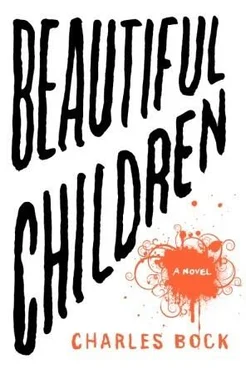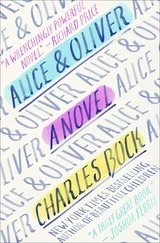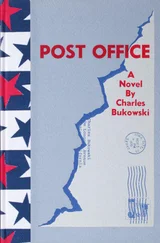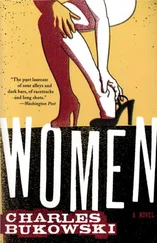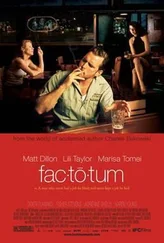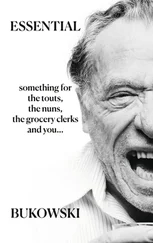From the looks of things, Newell wasn't alone in this opinion. The store was largely empty, just a few underclassman types solemnly wandering the new arrivals racks, and three or four guys standing at a respectful distance from the autograph table, nodding and listening, but seeming unconvinced, reluctant to come in any closer. Newell couldn't blame them. Why the illustrator and creative mind behind Wendy White-bread, Undercover Slut had been booked, he had no clue. Beiderbixxe's comic was this cheapo deal, printed on rough paper, published by some rinky-dink outfit. Word of mouth claimed the bizarre name had been lifted from an obscure porno comic, and if that was true, Newell had to admit, it was pretty cool. Too bad the rest of Whitebread bit so hard. The ditzy blond policewoman with the badge over her crotch never did anything fresh. Every single panel had been ripped off from some way-better comic. Every pose was a pose of a pose. Newell had complained about it to Kenny, who was older and knew a lot more about this stuff. They must not have been able to get anyone else to come, Newell had said, referring to Bing as Bonerbite. Bonerbite sucks goat balls. The hairs from goat balls get stuck between his teeth and Bonerbite walks around sucking on them, getting all the taste he can. Kenny had listened, and after a few moments, in that halting and unconvinced way of his, had admitted he didn't completely understand, either. He'd taken his time, negotiating and making order of his thoughts, starting over a few times, correcting himself a few more, and finally, Kenny had said the references in Wendy Whitebread were some sort of map, he guessed, and the books were a kind of tribute, he thought, but like a commentary, too. “It's supposed to be funny. But in a serious way. You know, where not giving away the humor is part of the joke?”
Today, while waiting around, in deference to his friend, Newell had given Wendy Whitebread another chance, examining some of the panels, paying attention to the connection each might have with its source material, trying to figure out, as Kenny had suggested, why Bing might have chosen that specific panel for inspiration, what the changes might have meant. Bing's logic remained a shelf Newell could not reach, no matter how he strained from the top of his mental tiptoes. Still, the boy had gained enough appreciation for the guy's work that, presently, from his vantage point, about halfway in the store, he watched the comic book artist with more than a middling interest: Beiderbixxe, hefty and balding, his face large and fleshy, pale and pinkish. Behind boxy black eyeglasses, he appeared intelligent, welcoming even; busily weaving some sort of tale, trying like hell to appeal to each of his few audience members. “In the fifties,” he was saying, “these two, they'd end up beats or novelists or something. In the sixties, they'd be, what, hippy rock stars, Warhol figures. The seventies they become filmmakers. The eighties they get into rap or maybe indie rock. The nineties, that's easy, they're hacking the World Bank's source code.”
Newell half-listened, but was a step behind the story, unable to follow along, and, truth be told, not all that interested. Bing's meaty left hand wasn't helping — it kept making this rolling motion, as if this would spin the guy toward his point more quickly. Newell got distracted by the hand, and then his eyes wandered some more, toward the table, near the artist's elbow, where a plastic bottle was mostly empty, a sluice of fluorescent liquid along the bottom.
“Just putting it out there,” Bing said. “Is it at all possible that these bad kids are the latest installment of avant-garde, that two killers just might be nothing less than evolutionary forerunners?”
The boy gave up now, turning away, looking through the glass door and picture window at the shopping plaza, still and dead, the rows of parked cars, nobody coming or going. The day outside was bright and oppressive, and the boy's face felt warm. He reached for the vinyl case, which hung from the side belt loop of his jean shorts, and withdrew a small silver device. The tip of his tongue peeked out of the corner of his mouth; his fingers danced a familiar pattern. He listened for three rings but did not leave a message, instead quickly pressing the button in the upper right corner of the pad. More punching now, each digit entered with increasing force. The phone went back to his ear; a longing swelled through him. For a moment he resented the universe for all the things he did not understand. He listened for a time, managed to keep from stomping his foot, and then looked once more to the store's entrance, a longer, harder look this time, one that concentrated and focused his building energies. Impulses pulsed through Newell, telling him to whirl around, throw his phone at Beiderbixxe, mute that stupid droning voice. Instead the boy pressed a control button on his phone, switching modes.
His high score on the phone game was 730 million, and Newell was on his way to clearing the first screen when a stray missile infiltrated his defense system, obliterating his home base. He snorted a vulgarity, swung his leg as if to punt away the small silver box, and corkscrewed in place. Newell had an impulse to scream at some guy who might have been looking at him. Then his shoulders sagged. The boy sulked and fumed and desultorily hit the reset button on his phone. He was about to start the game over when, from the front of the store, the jingle and clank of small metal bells sounded.
Prodding the door with his shoulder came an odd collection of lines and angles. Gangly, wiry, a little weird-looking, even for this place. Hair was spackled to his forehead in darkish streaks. More hair fell over his eyes, covering his ears, winding down in oily tendrils toward his shoulders. Arms white and thin, like limp strands of uncooked spaghetti, stuck out from a used and faded T-shirt, itself damp, clingy. He wore the same jeans he always did, the only person Newell knew who wore jeans in a hundred-and-ten-degree weather.
“FINALLY, NIGGA. Where the fuck you been, Kenny?”
With unteachable comic timing, the odd lines folded upon themselves, collapsing with an uncoordinated ferocity. Kenny did this strange, desperate wingy deal with his other arm, to no avail — the sheets continued their descent, slipping out from beneath the crook of his arm that had held them.
“Whoa… Hey—”
Newell arrived in time to grab the diner place mat. “I got it,” he said, easing a crumpled yellow flyer from the inside of Kenny's underarm.
“YO, KENNY,” he said. “You made it! My MAN.”
Kenny's body unclenched; he exhaled, allowed the boy to take the papers, said “Thanks.” Stepping into the store, he raised his head, let the air-conditioning run over him. Newell saw cheeks flushed to the shade of a ripe plum and sparkling with sweat, the bony surface of Kenny's features appearing raw, irritated.
“ Dude. I was fuckin’ bugging. I thought for sure you'd wuss out again.”
Kenny yanked the hair out of his eyes and back behind his ear. A long breath and he began to compose himself. Anxious eyes quickly scanned the store. “Couldn't get the Reliant started,” he said. “And I wasn't sure which to bring. I hope they're okay.”
Newell turned over the place mat, stared at it, then pressed the rumples against his knee. “Dude. If you could afford real drawing paper, you'd really be something. You know that, right?”
The words hung for a long moment. Kenny started to smile, but it was sheepish, and went uncompleted. He glanced down at his sneakers, noticing the ripped fringe of his jeans, inexplicably caught up and tucked inside his baggy gray socks. His laces, untied and dirty, were sprawled limply along the thin carpet.
Читать дальше
